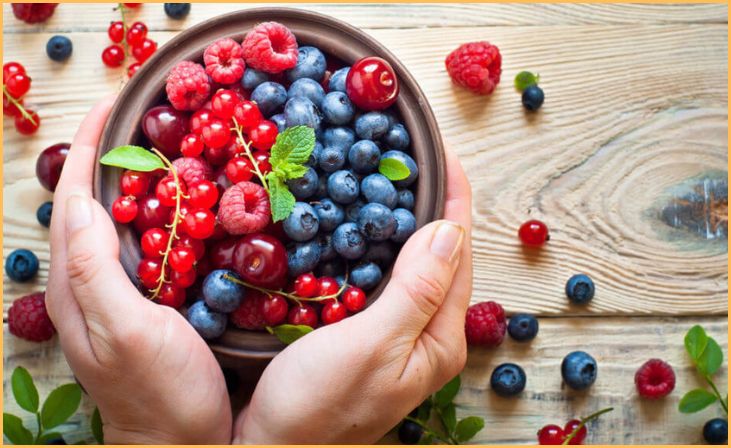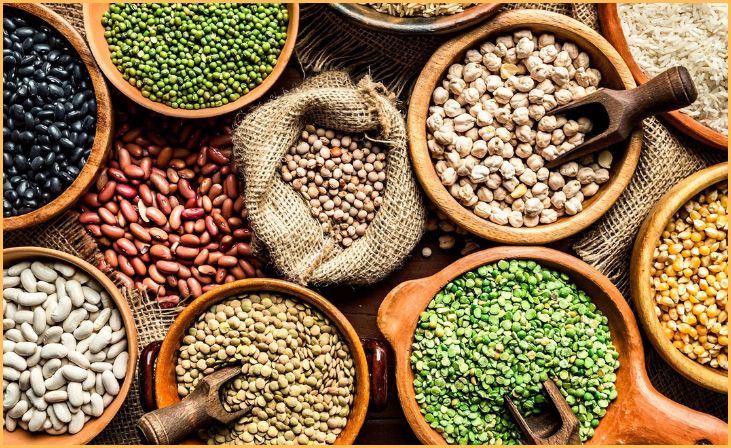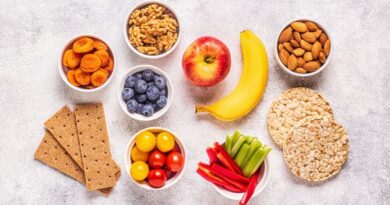Embarking on the journey of parenthood often involves a myriad of factors, with fertility playing a central role. While various elements contribute to reproductive health, diet can be a powerful influencer. The foods we consume can impact hormone levels, regulate menstrual cycles, and provide essential nutrients crucial for fertility. In this blog post, we delve into the realm of foods to boost your fertility, identifying eight nutrient-rich options that can potentially enhance reproductive wellness. From fertility-friendly fruits to nutrient-packed seeds, understanding the role of these foods in supporting fertility is a step toward embracing a holistic approach to family planning. Let’s explore the science behind these culinary allies and how they can become valuable additions to a fertility-focused lifestyle.
Top Foods to Boost Your Fertility
Fertility is a topic of significant importance for many individuals and couples. While various factors can influence fertility, including genetics and overall health, incorporating certain foods into your diet may help support reproductive health. Here are eight foods that are known to boost fertility:
1. Leafy Greens
Leafy greens like spinach, kale, and Swiss chard stand out as nutritional powerhouses, boasting not only an abundance of essential nutrients but also a significant concentration of folate, a vital B vitamin. Folate plays a pivotal role in supporting healthy cell division and DNA synthesis, making it indispensable for both reproductive health and fetal development. The inclusion of these nutrient-dense greens in your diet can contribute to a well-rounded approach to fertility, providing the necessary foundation for optimal cell function and reproductive processes.
From spinach-packed salads to kale-infused smoothies, incorporating these leafy greens into your meals offers a delicious and healthful strategy for those on the fertility journey. Embrace the vibrant goodness of these greens, knowing that each bite contributes to the intricate dance of cellular activity crucial for fertility and the potential for healthy pregnancy.
Quick Link: 5 Foods You Should Avoid Refrigerating
2. Berries

Berries, from the vibrant blueberries to the luscious strawberries and raspberries, emerge as not only delicious treats but also potent allies in promoting reproductive health. Bursting with antioxidants, particularly vitamin C and anthocyanins, these berries play a crucial role in shielding reproductive cells from oxidative stress and potential damage. The antioxidant-rich profile of berries contributes to a protective environment, fostering the well-being of reproductive cells and supporting overall reproductive health.
Incorporating these colorful gems into your diet adds a flavorful and nutritious dimension to your fertility journey. Whether enjoyed as a snack, blended into smoothies, or topping yogurt, the versatility of berries makes them a delightful addition to any fertility-focused meal plan. Embrace the natural goodness of berries, knowing that each bite is a step towards fortifying your reproductive cells and nurturing a foundation for optimal fertility.
3. Fatty Fish
Delving into the realm of fertility-boosting foods, fatty fish like salmon, mackerel, and sardines emerge as nutritional powerhouses, offering a rich source of omega-3 fatty acids. These essential fats play a pivotal role in fostering reproductive health by reducing inflammation, supporting hormonal balance, and facilitating healthy ovulation. The omega-3 fatty acids found abundantly in these fish varieties contribute to the creation of a favorable environment for reproductive processes.
From regulating hormone production to providing a foundation for optimal ovulatory function, the inclusion of fatty fish in your diet becomes a strategic choice for those on the fertility journey. Whether grilled, baked, or enjoyed in a savory dish, incorporating these omega-3-rich fish options brings a delicious and nutrient-dense dimension to a fertility-focused meal plan. Embrace the benefits of these fatty fish, recognizing each bite as a flavorful investment in hormonal balance and reproductive well-being.
4. Whole Grains
Whole grains, including quinoa, brown rice, and whole wheat bread, emerge as essential components in a fertility-focused diet, offering complex carbohydrates that play a crucial role in blood sugar regulation. The stability of blood sugar levels is a linchpin in maintaining hormonal balance, a pivotal factor for reproductive health. These whole grains contribute to a steady release of glucose, preventing spikes and crashes that can disrupt hormonal equilibrium. By providing sustained energy, they create an environment conducive to optimal reproductive function.
Whether enjoyed as a hearty grain bowl or a wholesome slice of bread, incorporating these whole grains into your diet becomes a strategic choice in promoting fertility. Embrace the nutrient-rich goodness of quinoa, brown rice, and whole wheat, understanding that each serving is a step towards fostering hormonal harmony and supporting your fertility journey.
Also Check: 10 Benefits of Eating Organic Food
5. Legumes

Beans, lentils, and chickpeas, prized as plant-based powerhouses, offer more than just a hearty meal; they present a valuable source of both protein and fiber. In the realm of reproductive health, these nutrients play a pivotal role in fostering balanced hormone levels. Protein, an essential building block for the body, supports the intricate dance of hormonal processes, while fiber contributes to overall digestive health. The combination of protein and fiber found in these legumes creates a synergistic effect, promoting stable energy release and aiding in the regulation of hormones crucial for reproductive well-being.
Whether stirred into stews, tossed in salads, or blended into hummus, incorporating beans, lentils, and chickpeas into your diet offers a delicious and nutrient-dense approach to supporting fertility. Embrace the plant-powered goodness of these legumes, recognizing each serving as a step towards maintaining hormonal balance and nurturing reproductive health.
6. Nuts and Seeds
Nuts and seeds, encompassing almonds, walnuts, flaxseeds, and chia seeds, stand as nutritional treasures, presenting a harmonious blend of healthy fats, protein, and essential nutrients. In the context of reproductive health, this combination plays a pivotal role in providing comprehensive support. Healthy fats contribute to hormonal balance, fostering an environment conducive to optimal reproductive function. Meanwhile, the protein content serves as a crucial building block for the body’s intricate hormonal processes. Additionally, the inclusion of essential nutrients in nuts and seeds adds a layer of nutritional richness, contributing to overall reproductive well-being.
Whether sprinkled on yogurt, blended into smoothies, or enjoyed as a wholesome snack, incorporating these nuts and seeds into your diet becomes a flavorful and nutrient-dense strategy for those prioritizing fertility. Embrace the diverse goodness of almonds, walnuts, flaxseeds, and chia seeds, recognizing each bite as a step towards nurturing hormonal equilibrium and supporting reproductive health.
7. Colorful Vegetables
Colorful vegetables, including bell peppers, carrots, and sweet potatoes, illuminate the plate with more than just vibrant hues; they are potent sources of beta-carotene, a precursor to vitamin A. In the realm of reproductive health, beta-carotene plays a pivotal role in supporting ovarian health and potentially enhancing fertility. This essential nutrient, found abundantly in these colorful veggies, contributes to the production of vitamin A, a key player in the intricate processes of reproductive function.
The inclusion of beta-carotene-rich vegetables in your diet becomes a flavorful strategy for nurturing ovarian well-being. Whether roasted, sautéed, or enjoyed in a rainbow-colored salad, incorporating these veggies offers a delightful and nutrient-packed approach to fertility support. Embrace the natural goodness of bell peppers, carrots, and sweet potatoes, recognizing each serving as a vibrant contribution to reproductive health and the potential for enhanced fertility.
Also Read: The 5 Best Foods to Help Fight Stress
8. Greek Yogurt

Greek yogurt, hailed as a nutritional powerhouse, stands out for its robust profile, offering a substantial dose of protein and calcium. In the realm of reproductive health, the significance of adequate calcium intake cannot be overstated. Calcium serves as a cornerstone for maintaining not only strong bones but also supporting optimal reproductive function. Greek yogurt’s rich protein content contributes to the intricate web of hormonal processes essential for reproductive well-being.
Whether enjoyed as a standalone snack, part of a refreshing parfait, or a base for smoothies, incorporating Greek yogurt into your diet becomes a delectable and nutrient-dense strategy for fertility support. Embrace the creamy goodness of Greek yogurt, recognizing each spoonful as a flavorful investment in reproductive health and overall well-being.
While no single food can guarantee fertility, adopting a well-balanced diet that includes these fertility-friendly foods can contribute to your overall reproductive health. Remember that diet is just one aspect of fertility, and factors like exercise, stress management, and seeking medical advice are equally important on your fertility journey.
Bottom Line
In the quest for fertility, considering the impact of diet is a proactive and empowering step. The foods we consume can be allies in supporting reproductive health, offering a natural and nourishing approach to family planning. By incorporating these eight fertility-boosting foods into your diet and embracing a holistic lifestyle, you pave the way for enhanced well-being and increased fertility potential. Remember, individual experiences may vary, and consulting with healthcare professionals is essential for personalized guidance on your fertility journey.
FAQs
Diet plays a crucial role in fertility by influencing hormonal balance, promoting a healthy weight, and providing essential nutrients. Certain foods contain antioxidants, vitamins, and minerals that support reproductive health, contributing to overall fertility.
While a healthy diet is beneficial for reproductive health, it is not a substitute for medical fertility treatments. A balanced diet, alongside medical guidance, can create a holistic approach to fertility, enhancing overall well-being.
Yes, the foods discussed in this blog post offer benefits for both men and women. They contain nutrients that support reproductive health, including antioxidants that can contribute to sperm health in men and hormonal balance in women.
Fertility is a complex and individualized journey, and results may vary. It’s essential to adopt a long-term perspective when making dietary changes for fertility and to consult with healthcare professionals for personalized guidance.







